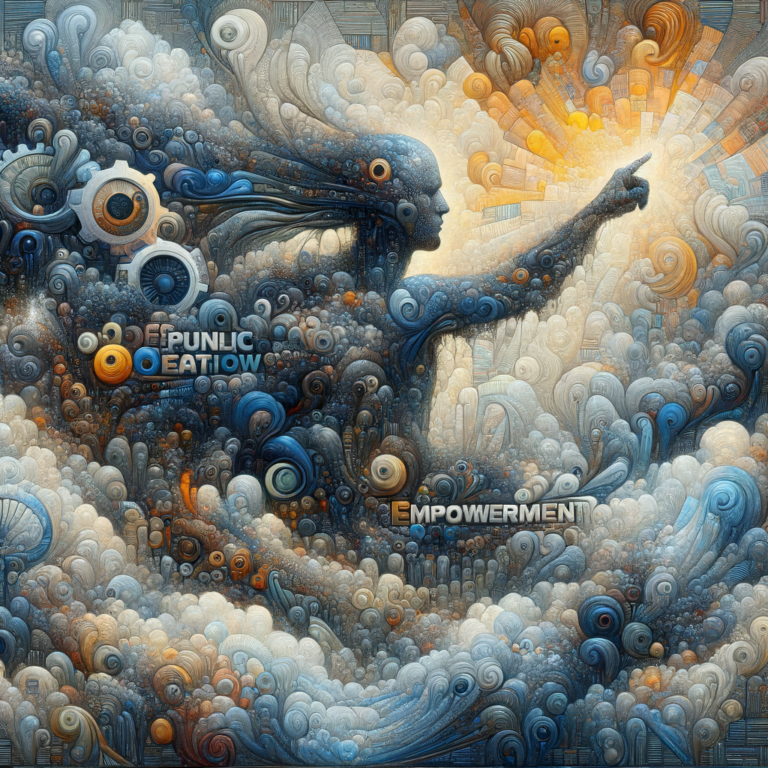The Basics of Public Choice Theory
Imagine you are at a restaurant trying to decide what to order for dinner. You weigh the cost of each dish, the taste, and how hungry you are. This process of decision-making is not just limited to individuals like you; it also applies to governments and policymakers when making economic decisions. Public Choice Theory helps us understand how these decisions are made and how they impact society as a whole.
- What is Public Choice Theory?
Public Choice Theory is a branch of economics that applies the principles of economics to the study of public decision-making. It focuses on how individuals, acting in their own self-interest, make decisions that affect the public as a whole. In other words, it examines how politicians, bureaucrats, and voters make choices in the political arena.
One of the key assumptions of Public Choice Theory is that individuals are rational actors who seek to maximize their own utility or well-being. This means that people will make decisions that benefit themselves the most, whether they are voting in an election or lobbying for a particular policy.
- The Role of Incentives
In Public Choice Theory, incentives play a crucial role in shaping decision-making. Just like how you might be more inclined to order a cheaper dish at a restaurant, politicians and policymakers are influenced by the incentives they face. For example, politicians may be more likely to support policies that benefit special interest groups that provide them with campaign contributions.
One famous example of how incentives can influence decision-making is the tragedy of the commons. This concept refers to a situation where individuals, acting in their own self-interest, deplete a shared resource. For instance, fishermen may overfish a lake because each individual fisherman benefits from catching more fish, even though it harms the overall fish population.
Applications of Public Choice Theory
Public Choice Theory has many real-world applications that can help us understand economic decision-making in various contexts. Let's explore some examples to see how this theory plays out in practice.
- Government Spending
One area where Public Choice Theory is particularly relevant is government spending. Politicians may have an incentive to increase government spending to gain support from voters or special interest groups. This can lead to inefficient allocation of resources and budget deficits. In Canada, for example, government spending on healthcare has been a contentious issue, with debates over how to balance the budget while providing quality healthcare services.
According to Statistics Canada, government spending in Canada has been steadily increasing over the years. In 2020, total government spending amounted to $1.1 trillion, with the largest expenditures going towards social services, healthcare, and education. Understanding the incentives that drive government spending can help us evaluate the effectiveness of public policies and advocate for more efficient allocation of resources.
- Voting Behavior
Another interesting application of Public Choice Theory is in understanding voting behavior. Voters may not always make decisions based on rational analysis of policies; instead, they may be influenced by emotions, biases, or misinformation. This can lead to outcomes that do not necessarily reflect the best interests of society as a whole.
In the United States, the 2016 presidential election is a prime example of how voting behavior can be influenced by factors other than policy considerations. Many voters were swayed by emotional appeals, personality traits, and social media influence, rather than a careful evaluation of the candidates' platforms. Understanding these dynamics can help us improve our electoral system and promote informed voting practices.
By applying the principles of Public Choice Theory to real-world scenarios, we can gain valuable insights into economic decision-making and empower ourselves to advocate for policies that benefit society as a whole. Whether it's analyzing government spending or understanding voting behavior, this theory provides a framework for understanding the incentives that drive decision-making in the public sphere.
I'll conclude by adding that I'm doing my best to clarify and simplify these topics. But remember that these little essays are only the beginning, and I encourage you to continue reading, learning, and exploring. To assist you, here are a few books about economics that will prepare you for your journey into the world of finance:












